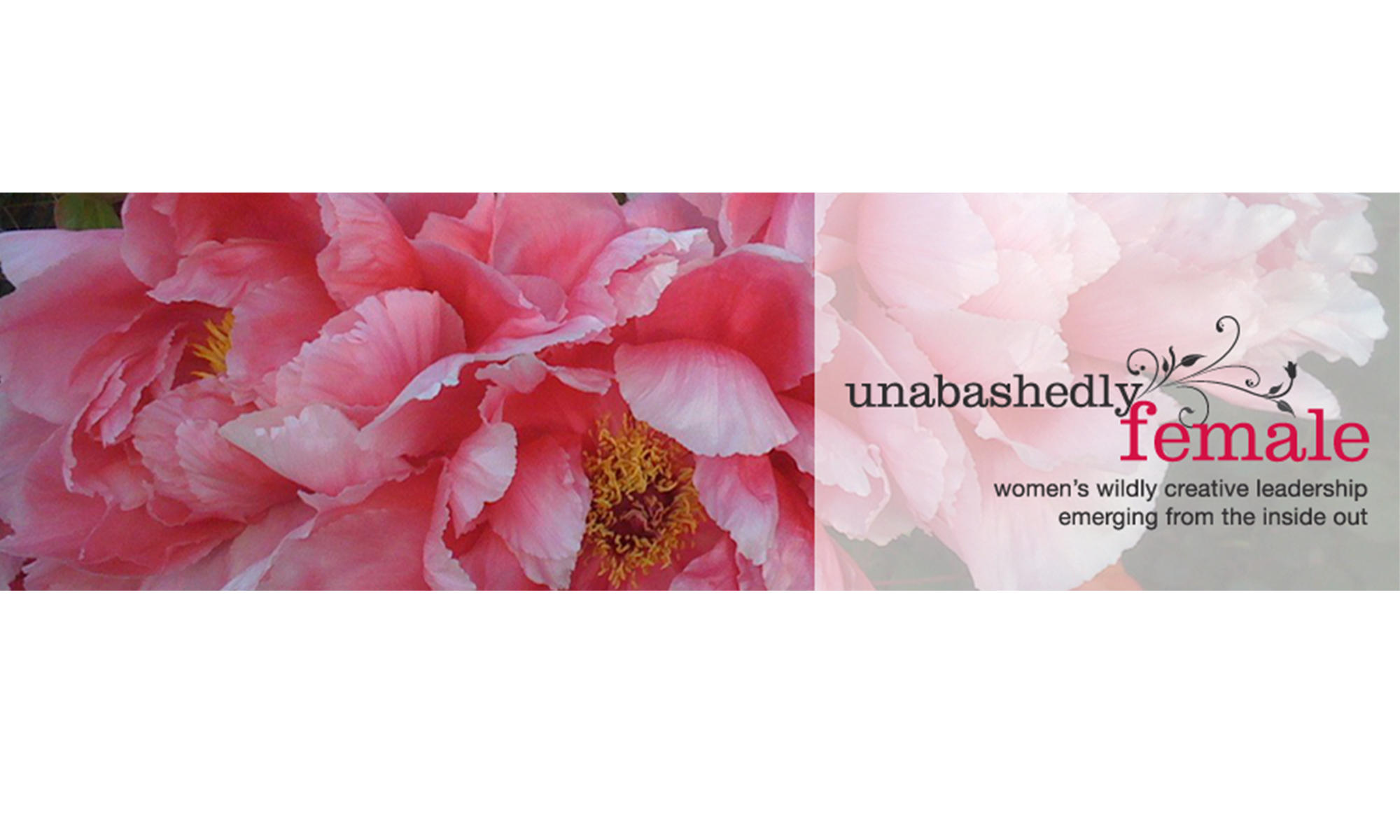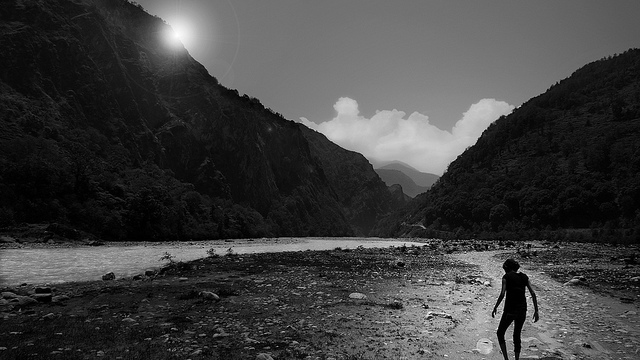“I was going to die, sooner or later, whether or not I had even spoken myself. My silences had not protected me. Your silences will not protect you….
What are the words you do not yet have? What are the tyrannies you swallow day by day and attempt to make your own, until you will sicken and die of them, still in silence? We have been socialized to respect fear more than our own need for language.”
~ Audre Lorde
::
Everything around me shouts out that I should be afraid. My body feels it.
A part of me wants to believe it, because it is what I know and its a formidable opponent…especially when everything we see in our socialized world seems to thrive on fear, stimulating it through repeated application.
When I first created my Internet presence, I felt so much fear. I couldn’t quite find the words to say what I wanted to say. Yet, I persevered.
Something in me needed, and continues to need, to find the language that will free me to express the beauty I see, the injustices that break my heart open, the truth I know in my bones.
Something pushes me to write about topics that aren’t comfortable or easy, that invite controversy, that challenge how I see myself and others.
I crave the language that will help me express the inexpressible, that will help you to know what it is that matters to me.
I long to see the connections between things I know and things I do not yet see, and I know that in writing, when I really let go into the fertile unknown, places can be illuminated if I am willing to write truth.
I hunger to know you, to know that place in you that is the same in me.
I yearn to connect women with the deep feminine within, for I know that when women finally make peace with their own womanhood, reconnect with our power that is present already, and come together in service of all of life we will know the sacred that is present in all things earthly and earthy.
Beautiful Epidemic
I notice how many women are writing, now. It seems to be an epidemic, a wild and contagiously beautiful epidemic.
For many of us, after a lifetime of being afraid to speak, words are now tumbling out onto the page and into the invisible connections that the Internet affords.
I see this wildly beautiful epidemic, and the sacred connections of the internet and social media, as a divine plan to bring our voices together into a beautiful chorus of remembering.
Sometimes, the tyrannies shout so loudly I can’t find the words I don’t yet know. All around my heart, I feel the walls that were erected, walls upon which those tyrannies were written. Sometimes, I long for enough room, enough space, enough solitude, enough of my own internal landscape so that I can alight on those words I do not yet know and tear down those walls I built so long ago.
Privilege
One of the ugliest tyrannies I have swallowed in my experience in this culture as a white, educated, woman of the middle-class is institutionalized privilege.
I’ve wondered what privilege actually is, and so have you.
In the comments to part one, Judith wrote,
“From my perspective, privilege is the freedom from having to think about your impact on another. Before I lost my hearing, I never really considered how important acoustic accessibility is to those who are hard of hearing. I didn’t have to think about it because it didn’t affect me. Now, however, it’s in the forefront of my consciousness all of the time. When I can extend my empathy and compassion to others who experience the world differently than I do, when I imagine how it might be for them and take action to rectify the inequity that I am causing people, the world will start to look a lot different to me and to those people known and unknown to me with whom I’m in constant relationship.”
Jeanie wrote,
This morning, I’m stunned by how “silence earns me privilege and costs me power….†and I’m thinking about how I need to take a good, long and bold look at that. What is privilege, anyway? Is it privilege or protection? And is privilege or protection based on distortions and out-right wrongs and maybe even evil really authentic privilege or protection, or just cover-ups and body bags, zipped around the parts of ourselves that are afraid to live loud and naked and real?
The cost of my silence is exacted from my autonomy and personal authority — and the price I pay for it is extracted from my body. Is it worth it to speak up? And how and where and with whom do I speak up so that my words and my effort matter and are not just lost in the quicksand pits of “the way it’s always been�
I know privilege is defined as:
A special advantage, immunity, permission, right, or benefit granted to or enjoyed by an individual, class, or caste. Such an advantage, immunity, or right exercised to the exclusion or detriment of others.
It’s hard for me to look at. Yes, I was born into it. It wasn’t my fault. And, at least for me, I know that once I become aware of it, to continue to enjoy it at someone else’s expense will kill my heart.
It feels to me that privilege can only be found at the expense of someone else. That’s the dirty little secret I never quite saw before, as naive as that sounds. There is always some way to justify our own specialness. I know I have.
Privilege pits one against another. It holds one above and the other below. It makes one more valuable, the other less.
I have experienced painful, painful things as a woman. You can call it oppression or not. I do. I have experienced this oppression, and I have enjoyed a place of specialness, too. In this culture, my place as a white woman is literally crazy-making. That’s the best way I can explain it. I am at a loss for words when I try to describe the way it feels to know I am an oppressed citizen because of my gender and a privileged citizen because of my race.
Through a great amount of inner work, I’ve reached the place where I no longer want to hang on to my grievances with those people in my life who caused me pain in the past.
I can see I still have grievances against the system, against a system that continues to cause so much suffering. Yet, this system isn’t a thing. It is held up by each one of us who lives and breaths its structure into the choices we make.
It’s taken me some time to figure out when I fight the system, I only strengthen it.
What if, instead, I come together with you, meeting somewhere where we hold each other as women who no longer desire to give life to that which keeps us separate, whether it be comparison of pain, guilt for participating in a system that privileges one over another, or any other way we’ve been socialized to keep the hierarchy in place?
What if we walk in love, together, doing what we do with great love, not only for each other, but for life itself?
What would it take to trust in your own womanhood, so deeply, that you see that womanhood in another and know her as yourself?
Liberation
Freedom doesn’t come when I think I have to help you because I am privileged.
Freedom doesn’t come when I shrink away because I feel guilty about my privilege.
Freedom will come when we see that none of us are free until we are all free and, as a wise Aborigine woman said,
“If you are coming to help me, you are wasting your time. But if you are coming because your liberation is bound with mine, then let us work together.”
Commenting on part three, Rupa wrote:
“I understand, to the degree I can, the pain you’ve felt in birthing this series, Julie. Privilege, class and race as they relate to womanhood is such a charged subject, and I respect you for your courage to explore it with a wide open heart. Thank you.
My hope is that the conversation you’ve begun will bring us closer in our shared experience of being women, not so much in our pain as in our power.”
Our Power As Women
Our power will come when we come out from under the shadow of this system into the light of our true selves, connected by our ‘shared experience of being women, not so much in our pain as in our power’.
I do know it means we must come to know ourselves new, to know ourselves as autonomous souls, not in relation to any other. While that may seem difficult at first glance, we can begin with telling the truth, somewhere in our lives. Yes, it can feel risky, yet:
“What’s the worst that could happen to me if I tell this truth?” Unlike women in other countries, our breaking silence is unlikely to have us jailed, “disappeared” or run off the road at night. Our speaking out will irritate some people, get us called bitchy or hypersensitive and disrupt some dinner parties. And then our speaking out will permit other women to speak, until laws are changed and lives are saved and the world is altered forever.
Next time, ask: What’s the worst that will happen? Then push yourself a little further than you dare. Once you start to speak, people will yell at you. They will interrupt you, put you down and suggest it’s personal. And the world won’t end.
And the speaking will get easier and easier. And you will find you have fallen in love with your own vision, which you may never have realized you had. And you will lose some friends and lovers, and realize you don’t miss them. And new ones will find you and cherish you. And you will still flirt and paint your nails, dress up and party, because, as I think Emma Goldman said, “If I can’t dance, I don’t want to be part of your revolution.” And at last you’ll know with surpassing certainty that only one thing is more frightening than speaking your truth. And that is not speaking.” ~ Audre Lorde:
::
This post is the fifth in a series of posts on Silence, Privilege and Oppression. You’ll find part one, part two, part three and part four to be important preludes to this post, as well as this interlude a beautiful expression of how powerful it is to voice what is dying to be said.


